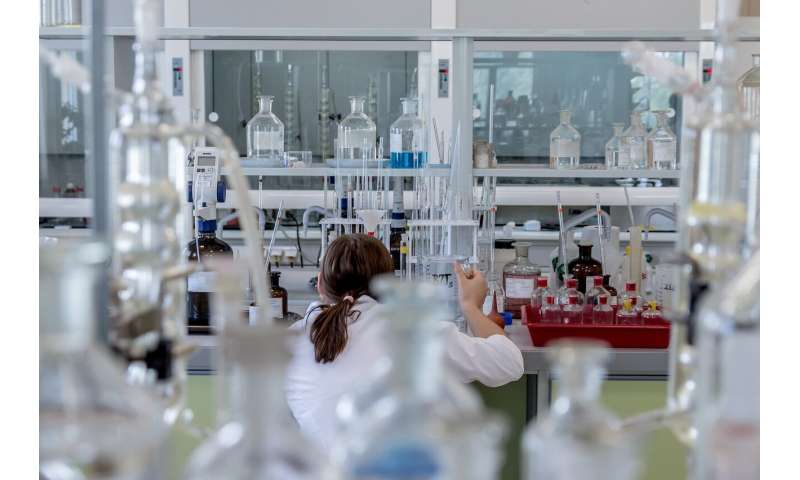
Eosinophilic gastritis and duodenitis are inflammatory diseases characterized by high levels of eosinophils and mast cells (immune system cells) in the stomach and duodenum. These disorders are often underdiagnosed and symptoms include chronic abdominal pain and cramping, nausea, bloating, loss of appetite, vomiting and diarrhea. The current standard of care includes corticosteroids, dietary elimination, or both. However, none are optimally effective for an estimated 50,000 people who suffer from these conditions.
A phase-2 trial co-led by Evan S. Dellon, MD, MPH, professor in the School of Medicine’s division of gastroenterology and hepatology and adjunct professor epidemiology in the UNC Gillings School of Global Public Health, showed that a novel humanized monoclonal antibody known as AK002 (lirentelimab) can target the siglec-8 receptor, which is highly specific to eosinophils and mast cells, and subsequently deplete eosinophils and inhibit mast cells. The study was published this week in the New England Journal of Medicine.
“This study is important for several reasons,” said Dellon. “It’s the first randomized trial in eosinophilic gastritis/duodenitis, which are understudied conditions for which there is a pressing need for new patient treatments. Second, the medication has a novel mechanism of action via the siglec-8 receptor, and this study now shows proof of concept in eosinophilic gastrointestinal diseases (EGID) of the utility of targeting this pathway. Finally, the results demonstrate efficacy. Patients not only had prominent decreases in their tissue eosinophil counts, but also had a substantial symptom improvement compared to placebo. Given the promising results, the medication has moved on to a phase-3 study in EG/EoD and a phase 2/3 study in eosinophilic esophagitis (EoE).”
The phase-2 trial randomly assigned adults who had symptomatic eosinophilic gastritis, eosinophilic duodenitis, or both conditions in a 1:1:1 ratio to receive four monthly infusions of low-dose AK002, high-dose AK002, or placebo. Of the 65 patients who underwent randomization, 43 were assigned to receive AK002 and 22 were assigned to receive placebo.
Source: Read Full Article
